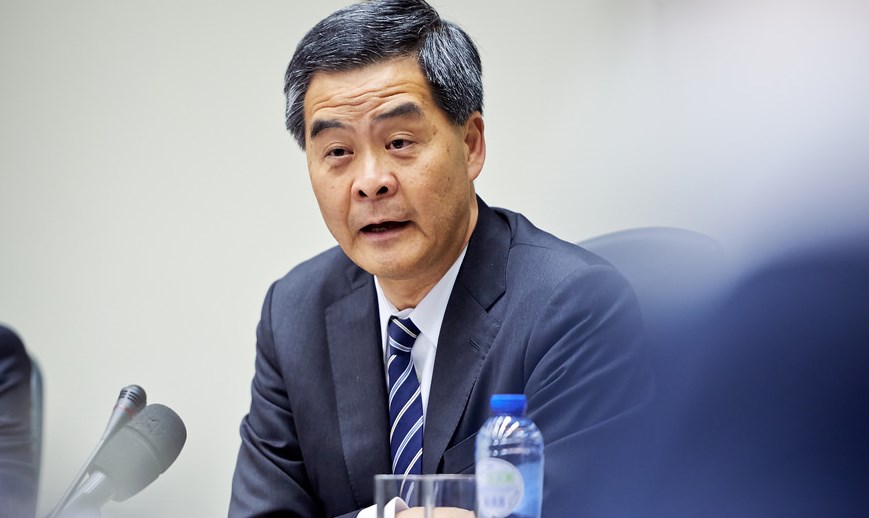The High Court has turned down two applications to review prosecutors’ decision not to lay charges against former Hong Kong chief executive Leung Chun-ying.
Leung was criticised for receiving a non-compete and non-poach payment of HK$50 million from the Australian firm UGL in 2012 and 2013, after it acquired UK firm DTZ. Leung was DTZ’s director in 2011 before he ran for the role of chief executive. The payments were made during Leung’s tenure as Hong Kong’s leader, but were not disclosed until a media exposé in 2014.

On Friday, judge Anderson Chow said that the two applications – filed by former civil servant Kwok Cheuk-kin and Bull Tsang from the League of Social Democrats – “are not reasonably arguable, and have no realistic prospect of success.”
The Department of Justice (DOJ) concluded a four-year investigation into the UGL scandal last December, but said it did not have sufficient evidence to charge Leung and pro-Beijing lawmaker Holden Chow for corruption and misconduct in public office.
Chow was also accused of colluding with the former chief executive, as Chow allowed Leung to revise the scope of a Legislative Council investigation into the UGL scandal.
Procedurally unfair
Kwok and Tsang argued in court that the DOJ should have sought the advice of outside counsel – a policy known as “briefing out” – before coming to a conclusion. By not doing so, the DOJ had broken the law and made a procedurally unfair decision, they argued.

In his 28-page judgement, Anderson Chow said that only some decisions by the Secretary for Justice were open to being reviewed by courts.
“The power of the Secretary for Justice to control criminal prosecutions was a constitutional power which must be exercised within constitutional limits, and accordingly subject to the court’s scrutiny as to whether the exercise of that power had exceeded the constitutional limits or remained with them,” he wrote.
Some examples of a justice chief acting outside constitutional limits include: acting in obedience to political instructions, acting in bad faith, or engaging in a “rigid fettering of prosecutorial discretion,” the judge added.

The legal challenge applications were thrown out because the applicants did not show that the justice chief acted outside constitutional limits, Chow wrote.
Kwok told reporters outside the court that he would consult his lawyers before deciding whether to appeal.
“We will use the evidence of a conflict of interest and start a private prosecution. We will never give up,” Kwok said.
Hong Kong Free Press relies on direct reader support. Help safeguard independent journalism and press freedom as we invest more in freelancers, overtime, safety gear & insurance during this summer’s protests. 10 ways to support us.

